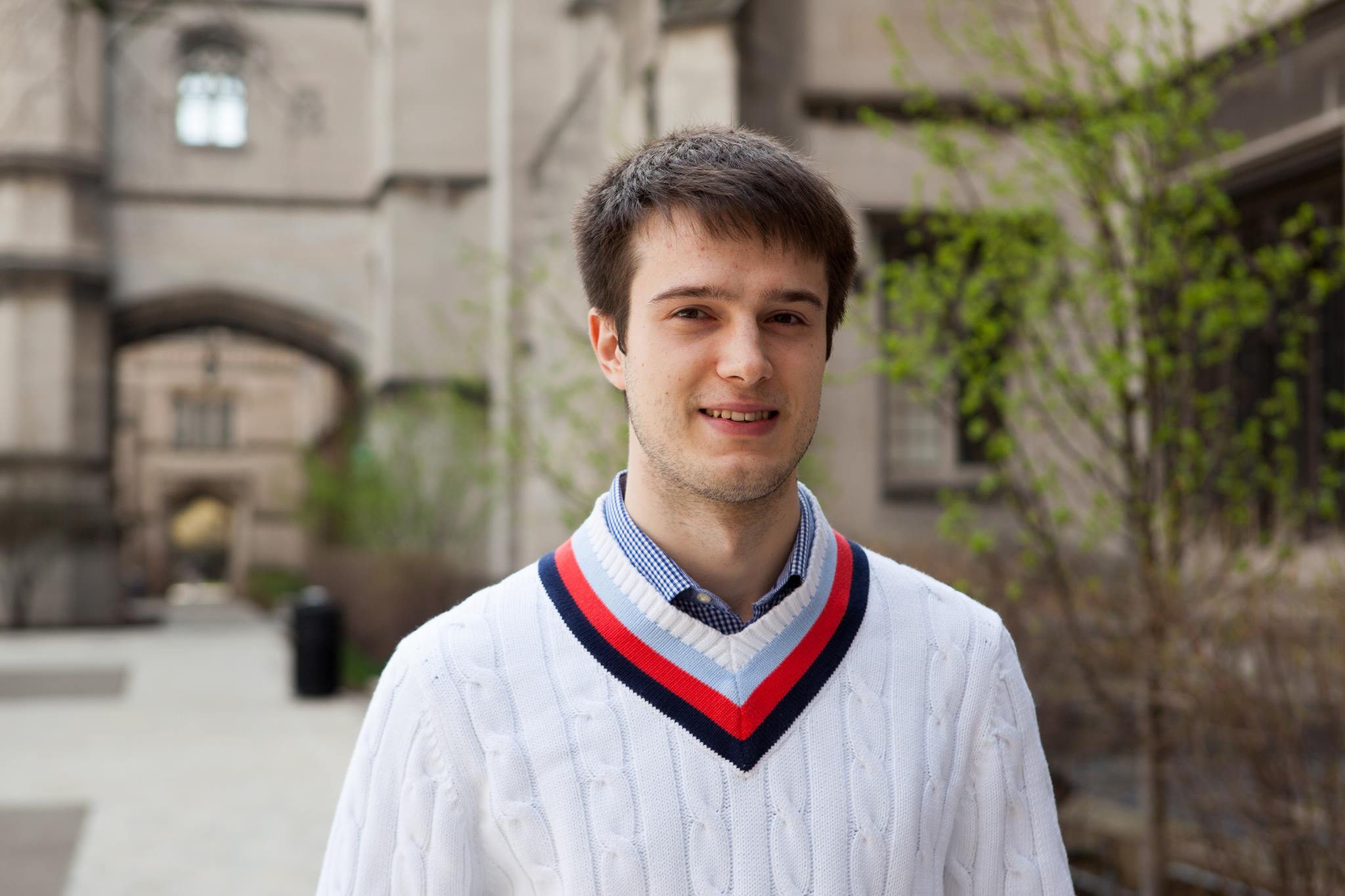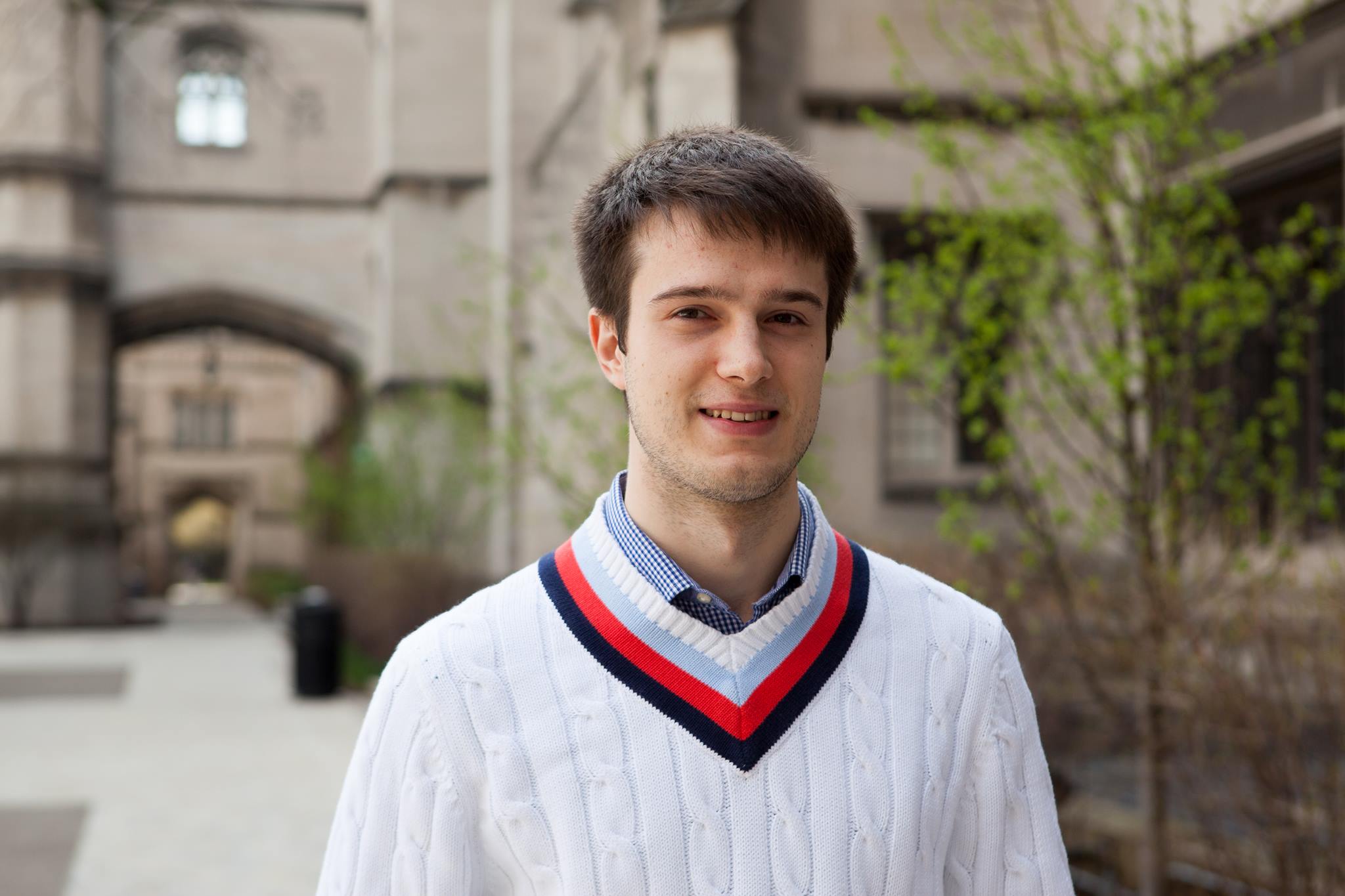
Yevgen Sautin talks about his PhD on the history of Manchuria after the Second World War.
My PhD will study how, in such a short period of time, Manchuria went from being hotly contested to becoming fully integrated into the new Chinese state. It’s an important story about modern China.
Yevgen Sautin
Manchuria was a focus for Chinese, Russian and Japanese imperial rivalries for decades leading up to the Second World War, but the post-war period and its reintegration into China has been the subject of comparatively little research.
For that reason Yevgen Sautin will be focusing his PhD in History on the region and specifically on the period following the Second World War. “Manchuria represents the intersection between very different worlds both geopolitically and in terms of its identity,” says Yevgen. He believes his focus on how the region transformed following the war will allow him to wrestle with bigger questions about the balance of power in East Asia, the determination of borders and the impact of the early Cold War period on modern China.
“Manchuria is a complicated story of great powers,” he says. “As a border region it was the place to flee to. It’s an interesting cauldron. My PhD will study how, in such a short period of time, the region went from being hotly contested to becoming fully integrated into the new Chinese state. It’s an important story about modern China.”
Childhood
Yevgen, who starts his PhD in the autumn under the supervision of Professor Hans van de Ven, has always had a strong interest in history and its impact on the present. Having been born in Ukraine at the time of the collapse of the USSR, he says, “history was always around me”. His grandfather would tell him stories about World War Two and, although his family moved away from Ukraine they would visit in the summer and saw the gradual transformation of the country over the years.
Yevgen also developed an early interest in the Far East. His family moved to Nagasaki in Japan when he was seven. “It was a very formative experience for me,” says Yevgen. Although he was homeschooled, he had Japanese friends and had the chance to absorb East Asian culture. “Nagasaki is a very rich city, one of the first Japanese cities for foreign trade. It has always been international and had a strong Chinese and later European influence. There is a lot of traditional Japanese culture such as Shinto shrines. It has had a formative influence on what I studied and on my later work. I have always been looking to see how I can make Asia something that is part of my professional career,” he says.
University life
After Nagasaki, his family moved to Florida where his parents both work at the University of Florida. His interest in Asia remained with him, though, and led to him studying Chinese at the University of Florida after choosing to major in history and economics and finding himself drawn to East Asian history. As part of his course he was able to travel abroad – to Taiwan, Beijing, Russia, and South Korea. “I was always looking for opportunities to study abroad,” he says.
His undergraduate dissertation was on late 19th century Russian intellectual history and he was fascinated by the way it differed greatly from that of Western Europe at the time because of the huge gap in Russia between the radical left and the reactionary right.
He graduated in 2012 and then did a study abroad programme in Nizhniy Novgorod in Russia over the summer funded by the US Department of Education.
That was followed by a one-year fellowship at the Carnegie Endowment for International Peace, working on the Russia and Eurasia and Energy and Climate Change programmes, where he focused on issues ranging from US-Russia relations to Canadian tar sands. During that time he was part of a UN/EU conflict resolution effort on the Trans Dniester region which brought stakeholders in the conflict together. “It was really interesting seeing the incremental progress made in the talks and how contact ensured that the situation did not get worse,” he says.
Yevgen then returned to his studies and did a master’s in international relations at the University of Chicago, taking a range of classes, with a focus on Northeast Asian contemporary history. During his course he won a critical languages scholarship from the State Department to study in China and spent a year in Taiwan on a scholarship, studying Chinese language, literature and history. This helped to solidify his desire to pursue a doctorate in history.
Since then he has been working as a risk analyst at US Bancorp in Washington DC, focusing on issues such as cyber security and technology policy.

Yevgen Sautin
- Alumni
- United States
- 2016 PhD History
- Selwyn College
I was born in Kiev, Ukraine, lived in Japan as a kid, and grew up in Gainesville, Florida, where I went to school at the University of Florida. Since childhood I have been fascinated by history. As an undergraduate student, I began studying Chinese, which quickly became a lifelong pursuit. During my college years, I studied abroad in China, Russia, and Taiwan. After college, I worked at the Carnegie Endowment for International Peace as a Junior Fellow in the Russia-Eurasia and Energy and Climate Change Programs. I then went back to school to get an M.A. at the University of Chicago in International Relations. This past year I was in Taiwan again as a Boren Fellow studying Chinese and doing research. At Cambridge I will be pursuing a Ph.D. in Modern Chinese History, researching Manchuria in the early post-war period. At the time Manchuria was a fiercely contested space both geopolitically and in terms of its identity. The topic has been understudied by historians and will allow me to wrestle with bigger questions about the balance of power in East Asia, the determination of borders, and the impact of the early Cold War period on modern China. When not working I love running, being a foodie, and globetrotting.
Previous Education
University of Chicago
University of Florida












